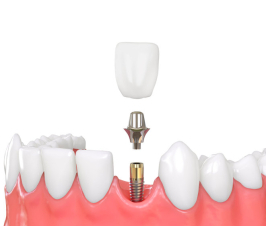Node Smith, ND
Though not available to the public, researchers at the University of Washington are fast at work developing a natural product that will use proteins to actually remineralize tooth enamel for treating dental caries.1
Commonly overlooked: importance of dental hygiene, and health
The importance of dental hygiene, and health, is often overlooked. Dental caries, or cavities, affect every age group and population, and can have detrimental health complications.
Metabolized sugars break down the enamel of the tooth
As bacteria metabolize sugars in the mouth (on the teeth), they create acidic waste byproducts which breaks down the enamel, called dentin, of the tooth. As this process progresses the core of the tooth can become exposed allowing bacteria to eventually infiltrate the tooth, gum and into the bloodstream. In fact, poor dental health is a risk factor for certain cardiac conditions – such as endocarditis – for this very reason.
“Remineralization guided by peptides is a healthy alternative to current dental health care,” says lead author
“Remineralization guided by peptides is a healthy alternative to current dental health care,” says lead author Mehmet Sarikaya, professor of materials science and engineering and adjunct professor in the Department of Chemical Engineering and Department of Oral Health Sciences. The idea of using products that mimic the way the body already rebuilds teeth could potentially cure cavities without the use of costly dental treatments.
Protein packed ideas surround products in the form of a paste or gel
The idea is that products would be available in the form of a paste or gel that would be applied to the teeth much like toothpaste is currently used.
Researchers took amelogenin and designed peptide derivatives that biomineralize
The researchers have taken amelogenin – a protein important to the forming of hard enamel of the tooth – and designed amelogenin-derived peptides that biomineralize. These are the key active ingredients of the technology. The process will restore the mineral structure found in normal tooth enamel. The way it does this is by adhering to the tooth enamel and recruiting calcium and phosphate ions. This allows for a mineralization of 10-50 micrometers of new enamel after each use. It could potentially be a part of daily dental care and prevention of cavities. It is expected to be safe for use by both children and adults.
Image Photo by Isaiah McClean on Unsplash
 Node Smith, ND, is a naturopathic physician in Portland, OR and associate editor for NDNR. He has been instrumental in maintaining a firm connection to the philosophy and heritage of naturopathic medicine among the next generation of docs. He helped found the first multi-generational experiential retreat, which brings elders, alumni, and students together for a weekend camp-out where naturopathic medicine and medical philosophy are experienced in nature. Four years ago he helped found the non-profit, Association for Naturopathic ReVitalization (ANR), for which he serves as the board chairman. ANR has a mission to inspire health practitioners to embody the naturopathic principles through experiential education. Node also has a firm belief that the next era of naturopathic medicine will see a resurgence of in-patient facilities which use fasting, earthing, hydrotherapy and homeopathy to bring people back from chronic diseases of modern living; he is involved in numerous conversations and projects to bring about this vision.
Node Smith, ND, is a naturopathic physician in Portland, OR and associate editor for NDNR. He has been instrumental in maintaining a firm connection to the philosophy and heritage of naturopathic medicine among the next generation of docs. He helped found the first multi-generational experiential retreat, which brings elders, alumni, and students together for a weekend camp-out where naturopathic medicine and medical philosophy are experienced in nature. Four years ago he helped found the non-profit, Association for Naturopathic ReVitalization (ANR), for which he serves as the board chairman. ANR has a mission to inspire health practitioners to embody the naturopathic principles through experiential education. Node also has a firm belief that the next era of naturopathic medicine will see a resurgence of in-patient facilities which use fasting, earthing, hydrotherapy and homeopathy to bring people back from chronic diseases of modern living; he is involved in numerous conversations and projects to bring about this vision.

















